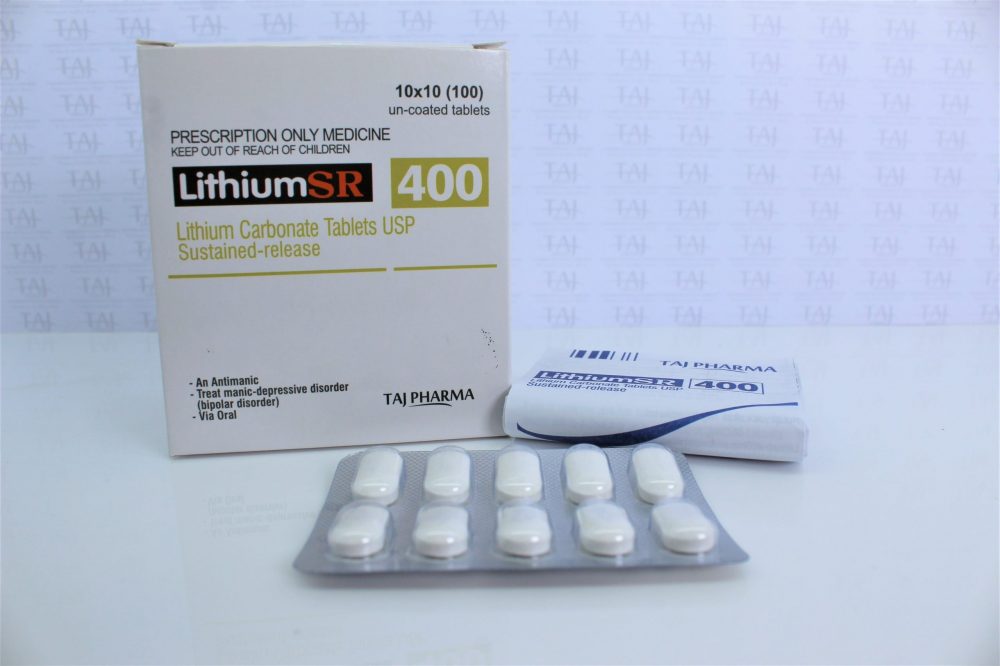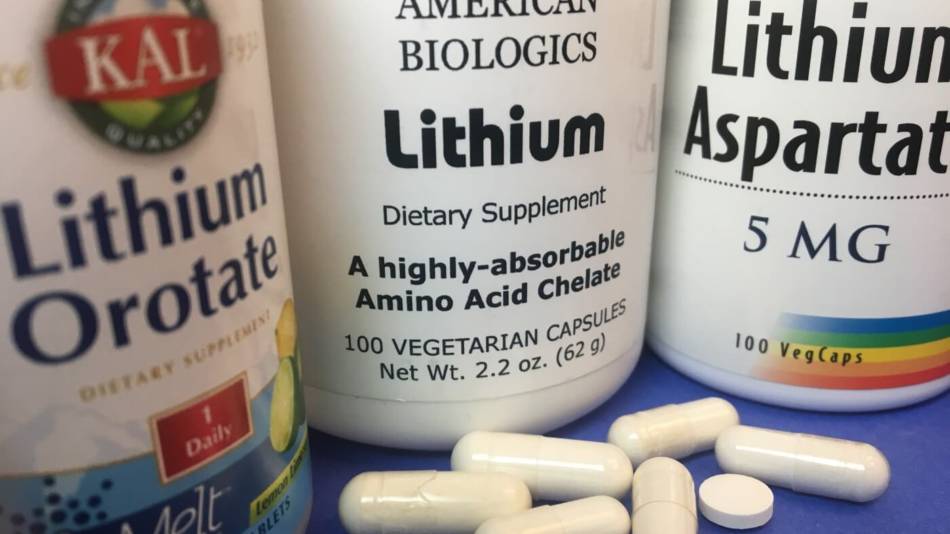Medicinal Lithium: Unlocking the Healing Potential
Eric Walker
October 17, 2023In recent years, there has been a growing interest in the medicinal properties of lithium. Traditionally it is known for application in the treatment of bipolar disorder. Lithium is now being explored for its potential therapeutic benefits in various other health conditions. This article will delve into the world of medicinal lithium, examining its history, mechanisms of action, and potential applications. It has been helping in treating mental health disorders, neurodegenerative diseases, and other conditions.
History of Medicinal Lithium
The history of medicinal lithium dates back to ancient times when its therapeutic properties were first discovered. Lithium, a naturally occurring element, was initially used for its cooling and stabilizing properties in glass and ceramics. However, its medicinal properties were not recognized until much later.
The first documented use of lithium in medicine dates back to the 19th century. In 1847, the Danish physician Carl Lange noticed that patients with mania experienced a calming effect when treated with lithium bromide. This observation led to further exploration of lithium’s potential in treating mental health conditions.
During the late 19th and early 20th centuries, lithium salts were used as a sedative and mood stabilizer in psychiatric hospitals. The exact mechanism of action was not fully understood at the time, but lithium was found to have a calming effect on patients with bipolar disorder and other mood disorders.
In the 1940s, Australian psychiatrist John Cade conducted experiments on guinea pigs and discovered that lithium carbonate had a significant mood-stabilizing effect. This groundbreaking research paved the way for the use of lithium as a treatment for bipolar disorder.
Managing Bipolar DisOrders
In the following decades, lithium became widely accepted as an effective medication for managing bipolar disorder. It was found to reduce the frequency and severity of manic episodes and stabilize mood fluctuations. Lithium also showed promise in preventing suicidal behavior in individuals with mood disorders.
Despite its effectiveness, the use of lithium as a medication has been somewhat controversial due to its narrow therapeutic index. This means that it requires careful monitoring of blood levels to avoid toxicity. However, when used appropriately, lithium remains one of the most effective treatments for bipolar disorder.
In recent years, research has expanded the understanding of lithium’s mechanism of action and its potential benefits in other areas of medicine. Studies have suggested that low-dose lithium may have neuroprotective effects and could play a role in treating neurodegenerative diseases such as Alzheimer’s and Parkinson’s.
Mechanisms of Action
Medicinal lithium, a widely used psychiatric medication, exerts its therapeutic effects through various mechanisms of action. Although the exact mechanisms are not fully understood, several hypotheses have been proposed to explain its pharmacological activity.
- Neurotransmitter Modulation: One of the proposed mechanisms is the modulation of neurotransmitters such as serotonin and norepinephrine. Lithium may enhance the release of serotonin, a neurotransmitter involved in mood regulation, and decrease the activity of norepinephrine, which is associated with anxiety and agitation.
- Second Messenger System Inhibition: Lithium is thought to inhibit certain enzymes that play a role in the second messenger system, particularly the enzyme glycogen synthase kinase-3 (GSK-3). By inhibiting GSK-3, lithium may affect various intracellular signaling pathways, which could contribute to its mood-stabilizing properties.
- Neuroprotective Effects: Another proposed mechanism involves the neuroprotective effects of lithium. It has been suggested that lithium may promote the growth and survival of neurons and protect against oxidative stress and excitotoxicity, which are implicated in psychiatric disorders.
- Ion Channel Regulation: Lithium has been shown to affect ion channels in the brain, including voltage-gated sodium channels and glutamate receptors. By modulating the activity of these channels, lithium may influence neuronal excitability and synaptic transmission.
- Gene Expression: Some studies suggest that lithium may modify gene expression patterns in the brain, leading to changes in the expression of various proteins involved in neuronal function and plasticity.
Role of Medicinal Lithium in Mental Health Disorders
Medicinal lithium plays a significant role in the treatment of various mental health disorders. It has been widely used as a mood stabilizer for individuals diagnosed with bipolar disorder. Lithium helps to regulate mood swings, preventing both manic and depressive episodes. By modulating neurotransmitter activity and enhancing neuroplasticity, it helps to reduce symptoms of mania, such as elevated mood, irritability, and impulsivity, while also alleviating symptoms of depression, such as sadness and low energy.
Moreover, lithium has shown promising effects in the treatment of major depressive disorder. It can enhance the efficacy of antidepressant medications and reduce the risk of relapse. Research suggests that lithium influences multiple biological pathways implicated in depression, including the modulation of the stress response system and the promotion of neurogenesis.
Additionally, medicinal lithium has demonstrated potential in the management of suicidal behavior. Studies have indicated that lithium can reduce the risk of suicide in individuals with mood disorders. Its anti-suicidal properties may be attributed to its ability to stabilize mood and attenuate impulsive behavior.
However, it is important to note that lithium requires careful monitoring and dosage adjustments due to its narrow therapeutic window. Regular blood tests are necessary to maintain optimal levels and minimize potential side effects, such as tremors, weight gain, and thyroid dysfunction.
Neuroprotective Effects of Medicinal Lithium
Lithium, a well-known medication used primarily in the treatment of bipolar disorder, has been found to possess neuroprotective effects that go beyond its psychiatric applications. The neuroprotective properties of lithium have sparked interest in its potential therapeutic use for various neurological disorders.
One of the key mechanisms underlying the neuroprotective effects of lithium is its ability to modulate neurotransmitter signaling. Lithium has been shown to enhance the release of neurotrophic factors, such as brain-derived neurotrophic factor (BDNF). It plays a crucial role in neuronal survival and synaptic plasticity. By promoting the growth and survival of neurons, lithium may help to protect against neurodegenerative conditions. This including Alzheimer’s disease and Parkinson’s disease.
Additionally, lithium has been found to inhibit glycogen synthase kinase-3 (GSK-3), an enzyme involved in various cellular processes, including neuronal apoptosis and inflammation. By inhibiting GSK-3, lithium can prevent the activation of apoptotic pathways and reduce neuroinflammation, thereby exerting a neuroprotective effect.
Curing Oxidative Stress and Mitochondrial Functions
Furthermore, lithium has been shown to regulate oxidative stress and mitochondrial function. Oxidative stress, which occurs when there is an imbalance between the production of reactive oxygen species (ROS) and the body’s antioxidant defenses, can lead to neuronal damage and cell death. Studies have demonstrated that lithium can enhance antioxidant defenses and reduce ROS production, thereby protecting neurons from oxidative damage. Additionally, lithium has been found to improve mitochondrial function, which is crucial for energy production in neurons.
The neuroprotective effects of lithium have been investigated in various preclinical and clinical studies. Animal models of neurodegenerative diseases have shown that lithium treatment can attenuate cognitive decline, reduce neuroinflammation, and enhance neuronal survival. In clinical studies, lithium has demonstrated potential benefits in patients with conditions such as Alzheimer’s disease, amyotrophic lateral sclerosis (ALS), and traumatic brain injury.
While the neuroprotective effects of lithium are promising, further research is needed to fully understand its mechanisms of action and optimize its therapeutic use. Nevertheless, the growing body of evidence suggests that medicinal lithium holds great potential as a neuroprotective agent for the prevention and treatment of neurological disorders.
Other Potential Applications of Medicinal Lithium
Lithium, a naturally occurring element, has long been used as a mood stabilizer in the treatment of bipolar disorder. However, recent studies and research suggest that there may be other potential applications of medicinal lithium beyond its psychiatric use. Here are some of the emerging areas where lithium shows promise:
- Neurodegenerative Diseases: Studies have shown that lithium may have neuroprotective effects and could potentially be used in the treatment of neurodegenerative diseases such as Alzheimer’s and Parkinson’s. It has been found to enhance neurogenesis and protect neurons from oxidative stress and inflammation.
- Cancer Treatment: Research has indicated that lithium has anti-cancer properties and could be used as an adjuvant therapy in cancer treatment. It has been shown to inhibit tumor growth, induce apoptosis (cell death) in cancer cells, and enhance the effectiveness of chemotherapy drugs.
- Neuroprotection after Stroke: Lithium has been investigated for its potential to protect the brain after a stroke. It has been found to reduce brain damage, promote neuronal survival, and improve functional recovery in animal models.
- Anti-inflammatory Effects: Lithium has been shown to have anti-inflammatory properties. This could make it useful in the treatment of conditions such as rheumatoid arthritis and bowel disease.
- Neuro-developmental Disorders: Preliminary research suggests that lithium may have a role in the treatment of neuro-developmental disorders like autism spectrum disorder and Fragile X syndrome. It has been found to modulate signaling pathways involved in brain development and synaptic plasticity.
Safety and Side Effects
Lithium is a commonly prescribed medication for the treatment of bipolar disorder and other psychiatric conditions. While it is generally considered safe and effective, it is important to be aware of its potential side effects and safety considerations.
Safety:
- Regular Monitoring: When taking lithium, regular blood tests are necessary to monitor the levels of the drug in the body. This is important because lithium has a narrow therapeutic range, meaning that levels too low may not be effective, while levels too high can be toxic.
- Hydration: Lithium can affect kidney function, so it is essential to maintain adequate hydration while taking this medication. Drinking enough fluids helps prevent dehydration and reduces the risk of kidney problems.
- Pregnancy and Breastfeeding: Women who are pregnant or breastfeeding should consult with their healthcare provider before taking lithium. The medication may pose risks to the developing fetus or infant, and alternative treatment options should be explored.
Side Effects:
- Gastrointestinal Issues: Common side effects of lithium include nausea, vomiting, diarrhea, and stomach pain. These symptoms can often be managed by taking the medication with food or adjusting the dosage.
- Hand Tremors: Some individuals may experience hand tremors or shaky hands while on lithium. This side effect is usually mild and reversible once the medication is discontinued or the dosage is adjusted.
- Thyroid Function: Lithium can interfere with thyroid function, leading to either an underactive or overactive thyroid. Regular monitoring of thyroid hormone levels is necessary to detect any abnormalities and adjust treatment accordingly.
- Weight Gain: Weight gain is another potential side effect of lithium. It is important to maintain a healthy lifestyle with a balanced diet and regular exercise to minimize this effect.
- Cognitive Effects: In some individuals, lithium may cause cognitive side effects such as memory problems or difficulty concentrating. If these symptoms become bothersome, it is important to discuss them with a healthcare provider.
Conclusion
Medicinal lithium has come a long way since its discovery as a treatment for bipolar disorder. It has ability to stabilize mood, protect against neurodegeneration, and potentially benefit other health conditions. This makes it an intriguing area of research. However, further studies are needed to fully understand its mechanisms of action and determine its efficacy in various applications. There are ongoing research and advancements in our understanding of this fascinating element. Medicinal lithium holds significant promise for improving the lives of individuals with mental health disorders and beyond.
You must consult a physician to consider taking any lithium tablets. This article is based on the research we did and the information available in various publications.
All Tags
